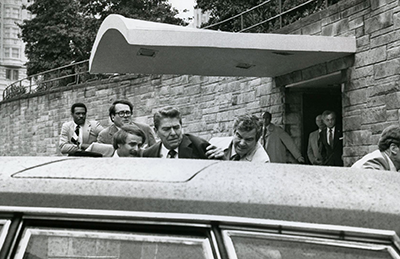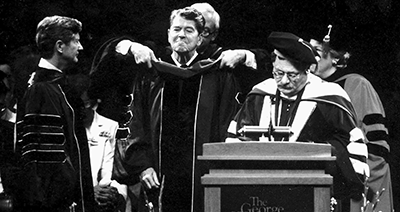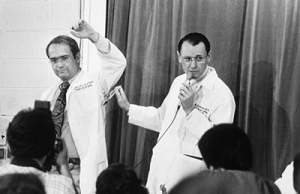George Washington University School of Medicine and Health Sciences and the GW Hospital vaulted onto the global stage 35 years ago, when President Ronald Reagan was shot in the chest by a 25-year-old, mentally ill gunman on March 30, 1981. The president and two of his aides, White House Press Secretary James Brady and Secret Service agent Timothy McCarthy, as well as D.C. police officer Thomas Delahaney, were shot by John Hinckley Jr. just outside the Washington Hilton.

The president was struck in the left lung, with a .22-caliber bullet entering under the left armpit and hitting the seventh rib, narrowly missing the heart and burrowing three inches into the left lung. Reagan was rushed to GW Hospital, where Joseph Giordano, M.D., RESD ’73, former chair of the Department of Surgery and Lewis B. Saltz Professor of Surgery, who headed GW Hospital’s trauma team in 1981, was among the first doctors to treat the president. Benjamin Aaron, M.D., now emeritus professor of surgery, was the lead surgeon during the two-hour emergency operation. Sol Edelstein, M.D., professor of emergency medicine and anesthesiology; Samuel Spagnola, M.D., professor of medicine; and Jack Zimmerman, M.D. ’64, emeritus professor of anesthesiology, all attended to the president during his first night following surgery.





